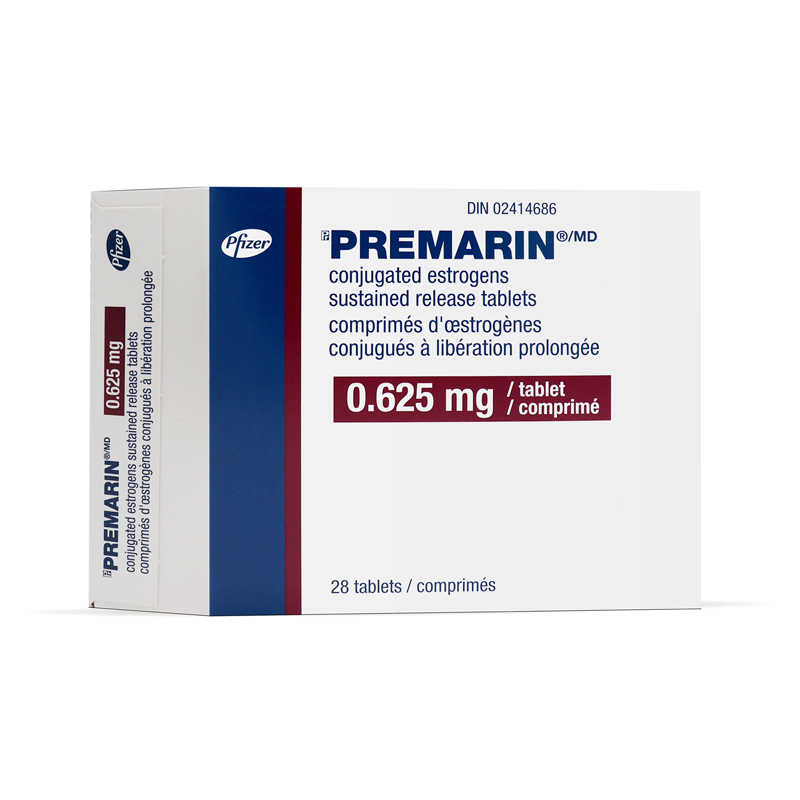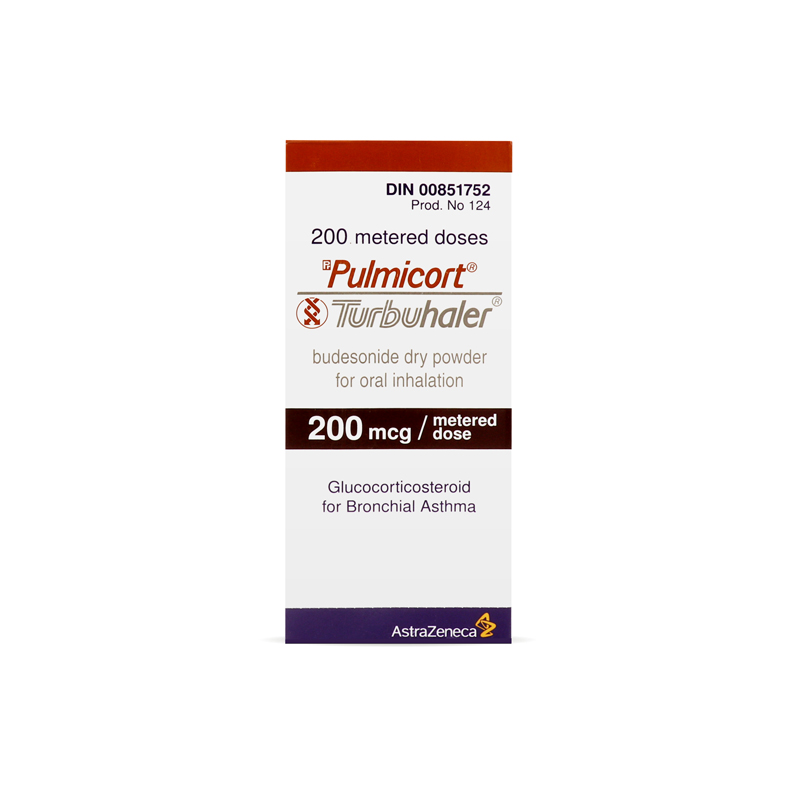Brand: Premarin
Active Ingredient(s): Estrogens Conjugated
Pack Size: 28 – 28 – 28 Tablets
Store at room temperature.
Manufacturer: Pfizer Canada Sri (Canada)
Alternatives:
Premarin (Estrogens Conjugated)
*A valid prescription is required for Rx items.
Description
What is Premarin?
Premarin is a prescription medication that contains conjugated estrogens, derived from the urine of pregnant mares. It is primarily used to treat menopausal symptoms, including hot flashes, night sweats, and vaginal dryness. Additionally, Premarin may be prescribed to prevent osteoporosis in postmenopausal women.
How does Premarin work in the body?
Premarin works by supplementing the body’s estrogen levels, which decline during menopause. The estrogen in Premarin helps to:
- Alleviate Menopausal Symptoms: By restoring estrogen levels, Premarin can reduce hot flashes and improve vaginal lubrication.
- Support Bone Health: Estrogen plays a crucial role in maintaining bone density; thus, Premarin can help prevent osteoporosis in postmenopausal women.
- Improve Mood and Sleep: Some women may experience improvements in mood and sleep quality as a result of stabilized hormone levels.
Who is Premarin for?
Premarin is intended for postmenopausal women experiencing moderate to severe menopausal symptoms. It may also be suitable for women who have undergone a hysterectomy and require estrogen therapy. Candidates for Premarin therapy include:
- Postmenopausal Women: Those experiencing significant symptoms such as hot flashes and vaginal dryness.
- Women at Risk for Osteoporosis: Individuals with risk factors for osteoporosis who may benefit from hormone replacement therapy.
What are the benefits of using Premarin?
Premarin offers several significant benefits for individuals undergoing menopause:
- Effective Relief from Menopausal Symptoms: It effectively reduces hot flashes, night sweats, and vaginal dryness.
- Bone Health Protection: Helps maintain bone density and reduce the risk of osteoporosis.
- Improved Quality of Life: Many users report enhanced mood, sleep quality, and overall well-being while using Premarin.
What are the side effects of Premarin?
While effective, Premarin may cause side effects in some individuals. Common side effects include:
- Nausea and Vomiting: Some users may experience gastrointestinal discomfort.
- Breast Tenderness: Hormonal changes can lead to breast tenderness or swelling.
- Headaches: Hormonal fluctuations may trigger headaches in some users.
- Increased Risk of Blood Clots: There is a potential risk of thromboembolic events; users should be aware of symptoms such as leg swelling or chest pain.
How should Premarin be taken / dosage information?
Premarin is typically taken orally in tablet form. Key dosage information includes:
Initial Dose: The usual starting dose is 0.3 mg to 1.25 mg daily, depending on individual needs and response.
Administration: It can be taken with or without food; consistency in timing each day is important for optimal results.
Who should avoid taking Premarin?
Certain individuals should avoid using Premarin:
- History of Hormone-Sensitive Cancers: Women with a history of breast cancer or other hormone-sensitive cancers should not use this medication.
- Severe Liver Disease: Individuals with liver dysfunction should avoid estrogen therapy due to potential complications.
- History of Blood Clots: Those with a history of deep vein thrombosis (DVT) or pulmonary embolism should consult their healthcare provider before starting treatment.
FAQs
Frequently Asked Questions (FAQ)
What is Premarin used for?
Premarin is primarily used for hormone replacement therapy in postmenopausal women to alleviate symptoms associated with menopause, such as hot flashes and vaginal dryness.
How does Premarin work?
Premarin works by supplementing estrogen levels in the body, which decline during menopause. This helps relieve menopausal symptoms and supports bone health.
Who should consider using Premarin?
Premarin is recommended for postmenopausal women experiencing moderate to severe menopausal symptoms or those at risk for osteoporosis who require estrogen therapy.
How should I take Premarin?
Premarin is taken orally as a tablet, typically at a dose ranging from 0.3 mg to 1.25 mg daily, depending on individual needs as determined by your healthcare provider.
What are the potential side effects of Premarin?
Common side effects include nausea, breast tenderness, headaches, and an increased risk of blood clots. Users should monitor for any unusual symptoms and consult their healthcare provider if they occur.
Can I buy Premarin online?
Yes, you can purchase Premarin online from licensed pharmacies like Canada PharmaHub; however, a valid prescription from a healthcare provider is required.
Is it safe to use Premarin long-term?
When prescribed by a healthcare professional and used as directed, Premarin can be safe for long-term use; however, regular monitoring by your doctor is essential to manage risks associated with hormone therapy.
What should I do if I miss a dose of Premarin?
If you miss a dose of Premarin, take it as soon as you remember on the same day. If it's almost time for your next dose, skip the missed dose and continue with your regular schedule—do not double up on doses.
There are no reviews yet.

















Reviews